New York Sustainable Winegrowing
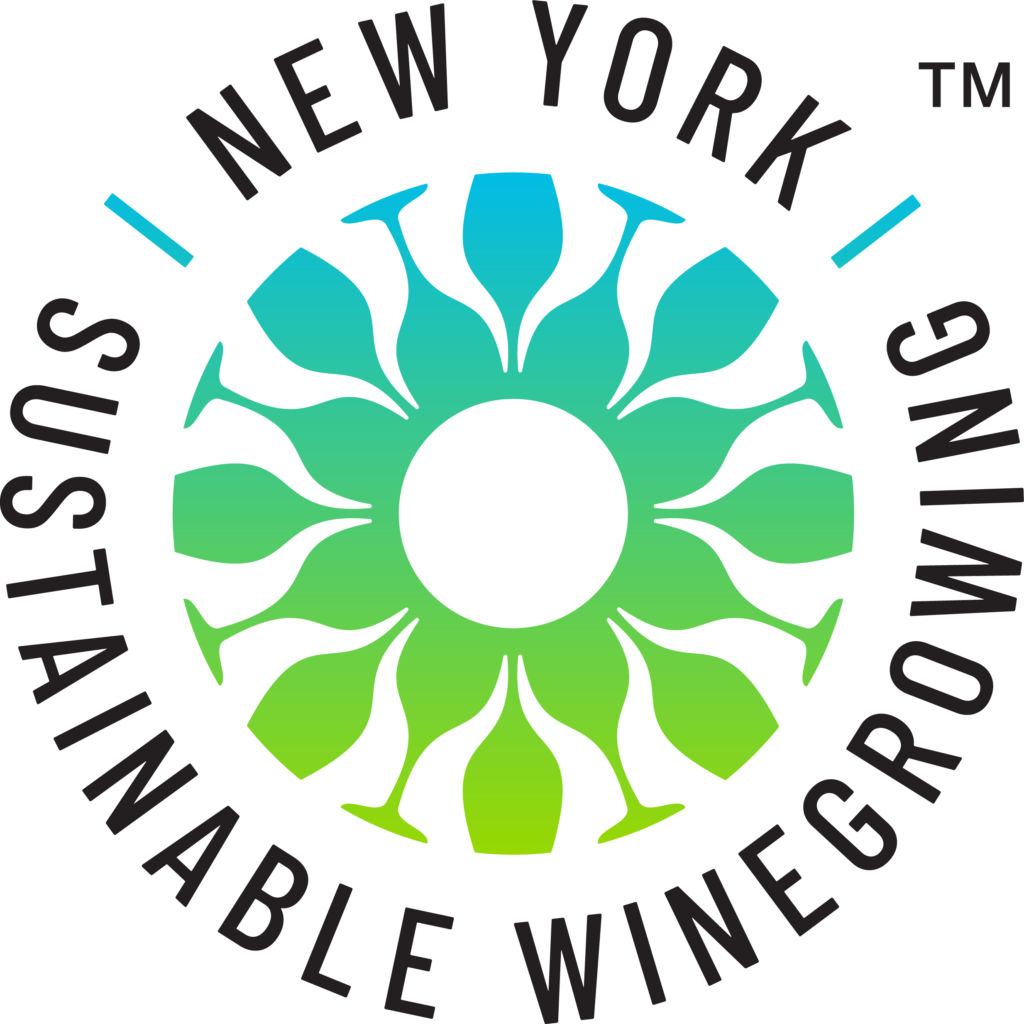
New York Sustainable Winegrowing is a comprehensive program that includes educational events and resources as well as an official certification process for Vineyards who are seeking to advance their environmental, social, and economic sustainability. Certification is based on science backed regionally defined standards and independent third-party audits so you can feel confident in the wine you are drinking.
Look for our Trustmark at Vineyards and wineries and on bottles in 2024 to ensure that the wine you are enjoying is environmentally sound, socially equitable, and financially sustainable. Click here for a list of certified vineyards.
Certification Standards
Certification is based on maintaining a minimum score in the VineBalance workbook. This workbook is designed to provide grape growers in New York and other regions of the Northeast with guidance in evaluating and adopting best management practices that minimize environmental impacts, reduce economic risks, and protect worker health and safety. Standards in the workbook are set by a panel of experts including academics, industry members, and extension specialists focusing on practices relevant to New York grape production. Annually, these standards undergo review and revision to ensure they are up to date with science based best practices and economic feasibility. Currently the workbook features nine objectives.
- To promote the use of practices that reduce reliance on off-farm inputs.
- To build, regenerate, and conserve healthy soils for future generations.
- To protect surrounding reservoirs and waterways from pollution.
- To improve energy efficiency and reduce greenhouse gas emissions.
- To conserve natural resources, reduce waste streams, and recycle.
- To encourage healthy ecosystems, biodiversity, and wildlife habitat.
- To increase climate resiliency and promote climate-smart farming.
- To provide education and pathways for continuous improvement.
- To foster a socially equitable and economically viable industry.
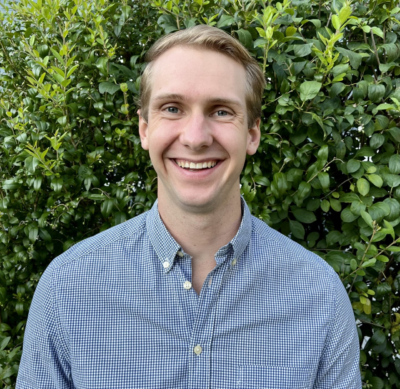
VineBalance 2024
NYWGF is pleased to announce the release of VineBalance 2024 as the latest edition of New York’s statewide code of sustainable winegrowing.
Important Dates
| October 10, 2024 | VineBalance 2023 Released |
| December 30, 2024 | Completed VineBalance Due |
| February – May, 2025 | In-person Audits Conducted |
Program Updates
Learn More
Tools and Resources
- Certification Standards
- Pre-Audit Checklist
- Vineyard Certification Agreement
- Trustmark Agreement for Vineyards
- Trustmark Agreement for Wineries
- Trustmark Bottle Application
- Trustmark Usage Guide
- Marketing Toolkit Training Video
- Participant Resources
- Action Plan Template (PDF Version)
- Action Plan Template (Editable Word Doc)
- Resources for Sustainable Viticulture
Events
Related News
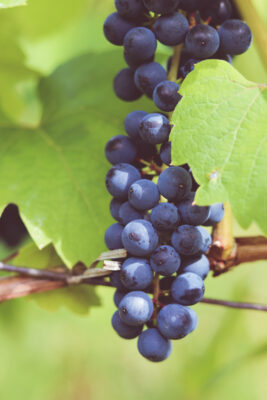
The Triple Bottom Line of Vineyard Sustainability
How do we measure the sustainability of the New York wine and grape industry? In sustainable agriculture, performance is measured using the “triple bottom line” framework. In addition to financial accounting, the triple bottom line framework also recognizes environmental and social returns. Over the past month, the NYWGF Grower Sustainability Advisory Committee has been collectively working to define the triple bottom line of sustainability for the New York wine and grape industry. The resulting Mission
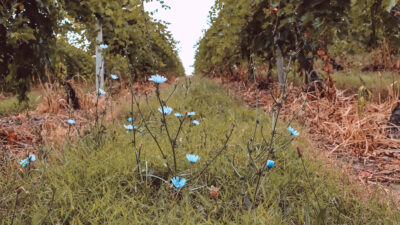
Future VineBalance Updates to Address Biodiversity and Social Equity
The first layer of this analysis evaluates the broader categories of sustainability addressed by each program to identify what all programs have in common, where VineBalance exceeds other programs, and where it falls short in addressing certain priorities. The categories of sustainability that all three programs share are soil health, water conservation, and pest management. One area where VineBalance goes deeper that other programs is pesticide management. For example, VineBalance includes questions about the security of pesticide storage, certified applicator supervision, and the recyclability of pesticide containers. Key areas where VineBalance falls short include management strategies for biodiversity and worker health and safety.
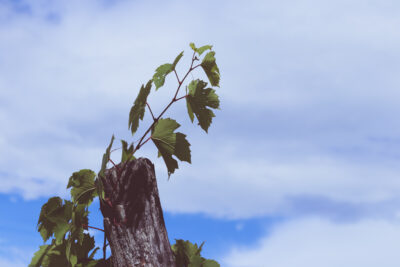
NYWGF Announces Sustainability Program Mission Statement and Objectives
The New York Wine & Grape Foundation is pleased to announce the release of a Mission Statement, Vision Statement and Objectives for our new statewide sustainability program. These guiding statements were collectively developed by our Grower Sustainability Advisory Committee and Sustainability Program Manager.
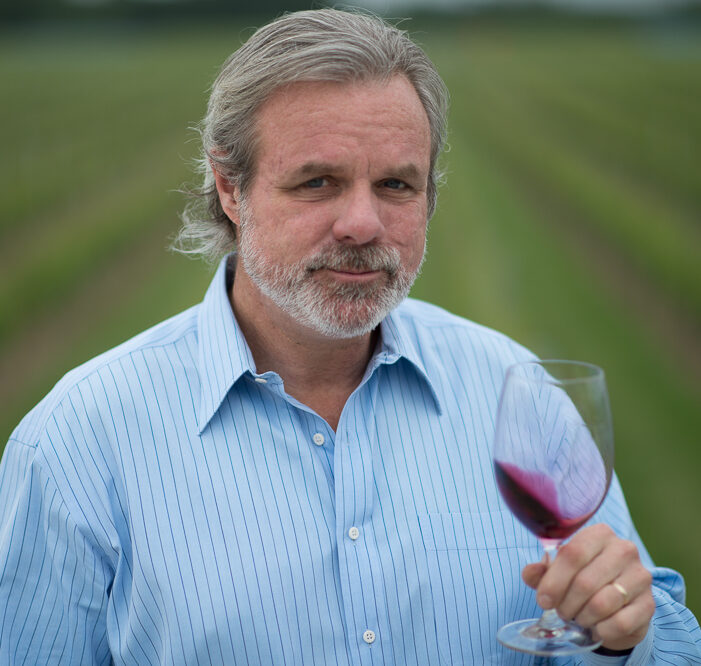
2024 Unity Awards: Sustainability Recipient - Rich Olsen-Harbich
Rich Olsen-Harbich began pioneering sustainable winegrowing techniques decades before it was cool.
“This Sustainability Award really validates what we’ve been doing at Bedell Cellars since 1980,” Olsen-Harbich, winemaker at Bedell Cellars, notes. “Sustainability is a zero-sum game. It is a pathway that you walk on, without an end in sight. You always want to find a way to be even more sustainable.”.
The Sustainability Award recognizes an organization or winery that has exemplified sustainable practices.
NYWGF is a Founding Member of the Sustainable Wine Roundtable
The Sustainable Wine Roundtable (SWR) is an independent, nonprofit, multi-stakeholder initiative to unite the international wine community around a consensus definition of sustainable wine. The mission of the SWR is to develop guidelines and best practices to advance sustainability in all aspects of wine production and trade. As a Founding Member, the Foundation will join with sister programs to share expertise and develop a global sustainability standard for wine. For more information, visit this link.
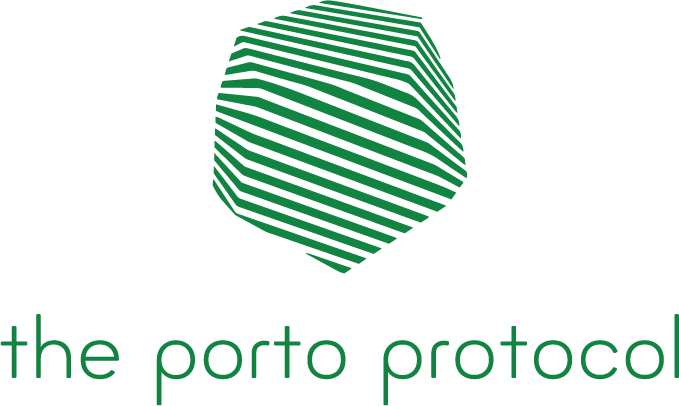
NYWGF Joins Porto Protocol
The NYWGF Sustainability Program would not be possible without support from the USDA Natural Resource Conservation Service, USDA Rural Development, New York State Department of Agriculture and Markets, Genesee Valley Regional Market Authority, Yates County, New York State Wine Grape Growers, and John Ingle of Ingle Vineyard and Heron Hill Winery.